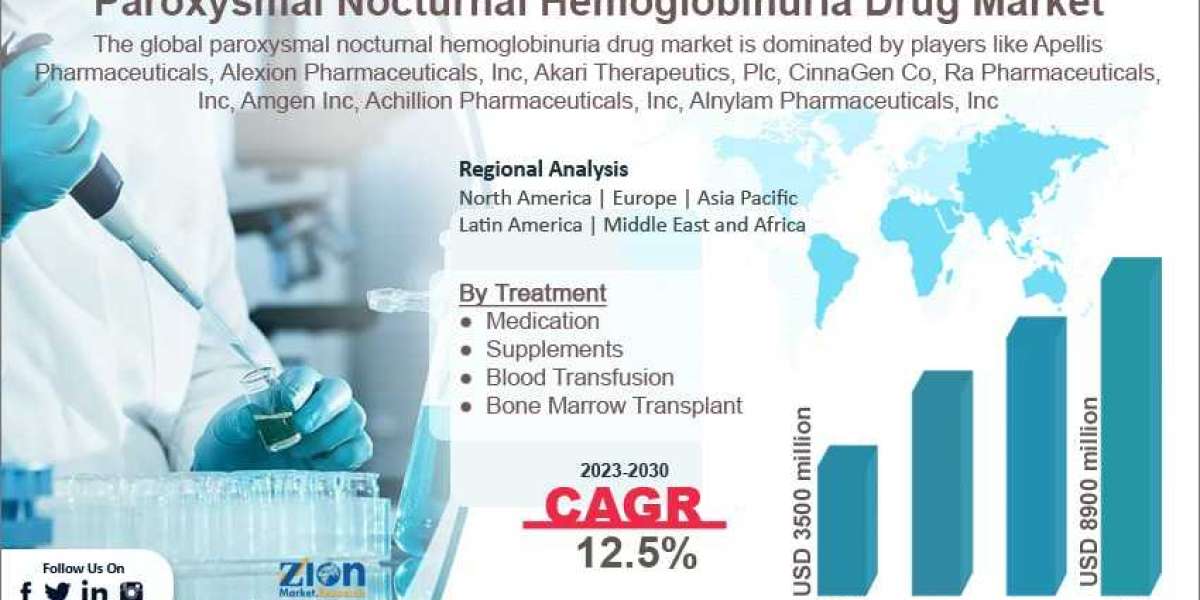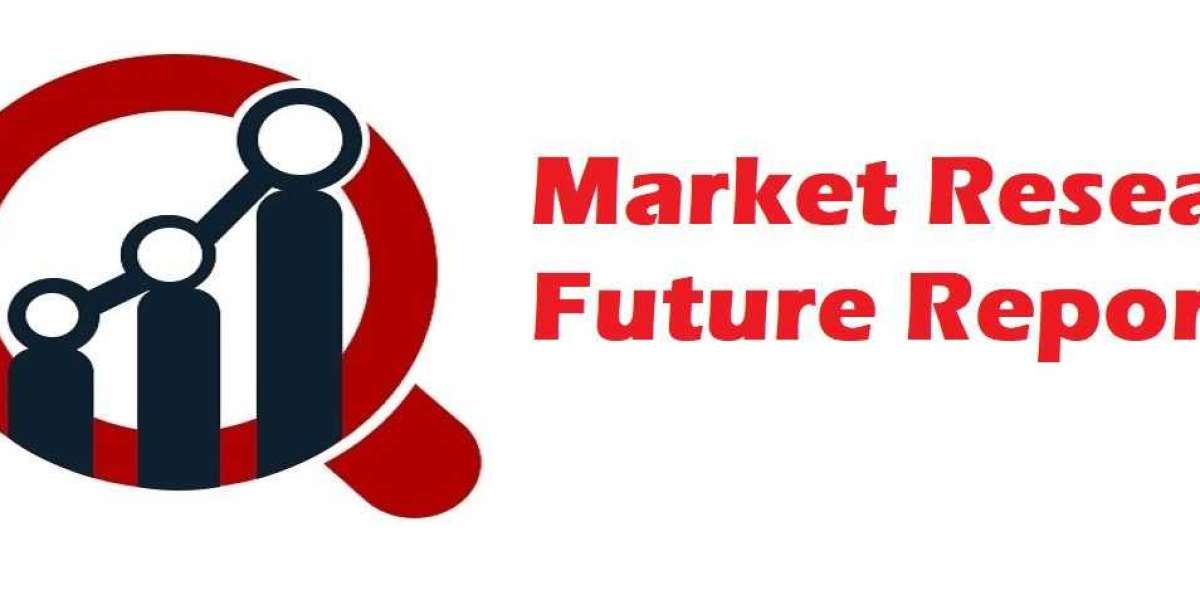The global paroxysmal nocturnal hemoglobinuria medication market was worth approximately USD 3500 million in 2022 and is expected to increase to approximately USD 8900 million by 2030, with a compound annual growth rate (CAGR) of approximately 12.5% between 2023 and 2030.
Overview of the Paroxysmal Nocturnal Hemoglobinuria Drug Market
PNH (paroxysmal nocturnal hemoglobinuria) is an uncommon and possibly fatal blood condition characterized by red blood cell destruction (hemolysis) and the presence of aberrant red blood cells in the bloodstream. It is caused by a genetic mutation that alters the proteins on the surface of red blood cells, resulting in the overactivation of the complement system, a component of the immune system that is responsible for removing foreign substances in the body.
The primary goal of PNH treatment is to regulate symptoms and prevent complications. The emergence of tailored treatments has transformed PNH management. The most well-known medicine used to treat PNH is eculizumab (brand name Soliris), a monoclonal antibody that suppresses complement system activation. Eculizumab has been demonstrated to reduce hemolysis, improve symptoms, and prevent consequences like thrombosis.
Read Related:
https://www.zionmarketresearch.com/news/global-paroxysmal-nocturnal-hemoglobinuria-drug-market
Eculizumab is given intravenously every 1 to 2 weeks, depending on the patient's reaction and disease severity. It has been licensed by regulatory authorities for the treatment of PNH and has greatly improved the prognosis for people suffering from the ailment. Other treatment options may include bone marrow transplantation, which has the potential to cure PNH, but it is a high-risk procedure reserved for severe cases or when other treatments have failed.
The Food and Drug Administration (FDA) has approved an increasing variety of PNH treatments, including iron supplements, blood transfusions, blood thinners, eculizumab (Soliris), and bone marrow transplants. Furthermore, new research and development initiatives are being carried out to develop cheap paroxysmal nocturnal hemoglobinuria (PNH) treatments, which are expected to fuel the revenue of the paroxysmal nocturnal hemoglobinuria pharmaceuticals market.
Growth Drivers in the Paroxysmal Nocturnal Hemoglobinuria Drug Market
Increasing regulatory clearances and RD fuel market expansion.
Regulatory approvals from agencies such as the United States Food and Drug Administration (FDA), the European Medicines Agency (EMA), and other worldwide regulatory bodies are critical in the global paroxysmal nocturnal hemoglobinuria drug market dynamics. The approval of eculizumab and eculizumab has laid a solid platform for their market presence and expanded patient accessibility.
Drug Market for Paroxysmal Nocturnal Hemoglobinuria: Segmentation
The global paroxysmal nocturnal hemoglobinuria drug industry is divided into treatment, medications, method of administration, distribution channel, end-user, and region segments.
The global market is divided into pharmaceuticals, supplements, blood transfusion, and bone marrow transplants based on the treatment. Over the projection period, the blood transfusion segment is expected to hold the greatest market share. Blood transfusion is one of these treatments that may help to alleviate the symptoms of anemia. If left untreated, PNH has major adverse effects such as thrombosis, and can be fatal.
Paroxysmal Nocturnal Hemoglobinuria Drug Market: Regional Analysis
North America is expected to hold the largest market share over the forecast period
North America is expected to hold the largest global paroxysmal nocturnal hemoglobinuria drug market share over the forecast period. The region's PNH drug market is dominated by major pharmaceutical companies that produce and market targeted therapies for PNH. Companies such as Alexion Pharmaceuticals (now part of AstraZeneca) and their drug eculizumab (trade name Soliris) have played a significant role in shaping the market landscape.
Paroxysmal Nocturnal Hemoglobinuria Drug Market: Competitive Analysis
The global paroxysmal nocturnal hemoglobinuria drug market is dominated by players like:
Apellis Pharmaceuticals
Alexion Pharmaceuticals Inc
Akari Therapeutics Plc
CinnaGen Co
Ra Pharmaceuticals Inc
Amgen Inc
Achillion Pharmaceuticals Inc
Alnylam Pharmaceuticals Inc
F. Hoffmann-La Roche Ltd
Novartis AG
The global paroxysmal nocturnal hemoglobinuria drug market is segmented as follows:
By Treatment
Medication
Supplements
Blood Transfusion
Bone Marrow Transplant
By Drugs
Eculizumab
Ravulizumab
Others
By Route of Administration
Oral
Parenteral
By Distribution Channel
Direct
Online Pharmacy
Retailers
Others
By End User
Hospitals
Homecare
Specialty Clinics
Others
By Region
North America
The U.S.
Canada
Europe
France
The UK
Spain
Germany
Italy
Rest of Europe
Asia Pacific
China
Japan
India
South Korea
Southeast Asia
Rest of Asia Pacific
Latin America
Brazil
Mexico
Rest of Latin America
Middle East Africa
GCC
South Africa
Rest of Middle East Africa
Contact US
Zion Market Research
US OFFICE NO +1 (302) 444-0166
US/CAN TOLL-FREE +1 (855) 465-4651
Email: sales@zionmarketresearch.com
Read Also:
















